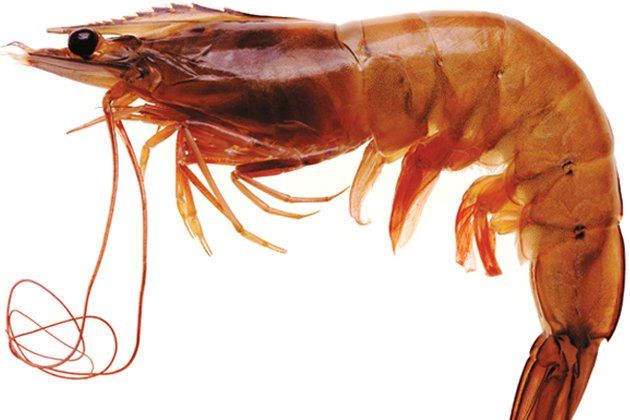
When President Obama took his August microvacation along the Gulf of Mexico, he swam in the water, munched on fish tacos, and said, "Let me be clear. Seafood from the gulf is safe to eat." He'd already dined on some during a trip in June and lived to tell, but post-BP seafood has been a tough sell. "People see the images and think, automatically, it's over," says Ralph Brennan, whose family owns 12 restaurants in New Orleans and who battled the same misconception five years ago, after Katrina. "It's a perception challenge."
The thought of 200 million gallons of oil spewing into the gulf is enough to give anyone pause, but at this point, you'd think folks would be clamoring for almost any alternative to the half billion suspect eggs the feds began recalling the same week as the president's outing. Gulf fishers—shrimpers, in particular—have had a tough time of late. Many had only just rebounded from Katrina when the well blew less than two weeks before the opening of the season. Worse, over the last 15 years they've lost the bulk of their market share to foreign imports. More than 90 percent of the shrimp consumed in this country comes from Thailand, China, India, and Ecuador, where the shrimp is raised in ponds so overcrowded, they also serve as breeding grounds for salmonella, bacteria, and parasites, which are combated by adding massive doses of antibiotics and fungicides to the water. Then there's the taste and texture, which Dave Pasternack, chef at Manhattan's Italian seafood mecca Esca, calls "disgusting."
Given the imports' lovely provenance, it's ironic that Americans are now squeamish about the catch in the gulf. We spot-test less than 2 percent of the shrimp that comes in, compared with the 20 to 30 percent required by the European Union. Contrast that to what's going on in the gulf, where waters must be free of oil for a month before fishing is allowed. Samples of all fish and shellfish (directly from the water, as well as from docks and markets) are then aggressively tested for contaminants by both the FDA and the National Oceanic and Atmospheric Administration, which subjects them to microscopic analysis and the "sniff test" (by people trained to detect the presence of oil). To Pasternack, such measures mean that "gulf seafood is the safest seafood in the world right now."
Pasternack was in New Orleans last week to show the flag and to go fishing with Donald Link, the James Beard award-winning chef-owner of Herbsaint, Cochon, and others. After a rigorous session of eating and drinking at Galatoire's, the two headed south, where they bow-fished for redfish and hooked everything else that came their way—including gar, which they turned into "meatballs" with pancetta when they returned to one of Link's restaurant kitchens. "Man, the life in the water is unbelievable," Pasternack told me after a night and a day on the water. "The quantity and variety is amazing. We were in a place where I kept hearing there was lots of oil, but I didn't see any." There were, however, lots of docked boats, whose captains were afraid that the high cost of gasoline and ice would not be offset by sales to a panicky public.
Anyone with doubts about the seafood would have been convinced by the feast Link and Pasternack cooked up at an event sponsored by the New Orleans Convention and Visitors Bureau. Among the dishes were pan-roasted shrimp, redfish "on the half shell," and Pasternack's spaghetti with his grandmother's crab sauce. Throughout the spill, Esca served red snapper from Alabama and from and Pensacola, Fla. ("The only really good snapper comes from the gulf"), along with Louisiana shrimp. He'll do the same, he says, at Eataly, Mario Batali's new complex opening this week in Manhattan. Pasternack will man the fish market, restaurant, and raw bar, and says, "I'll be having Louisiana shrimp and gulf fish, I can promise you that."
Uncommon Knowledge
Newsweek is committed to challenging conventional wisdom and finding connections in the search for common ground.
Newsweek is committed to challenging conventional wisdom and finding connections in the search for common ground.





